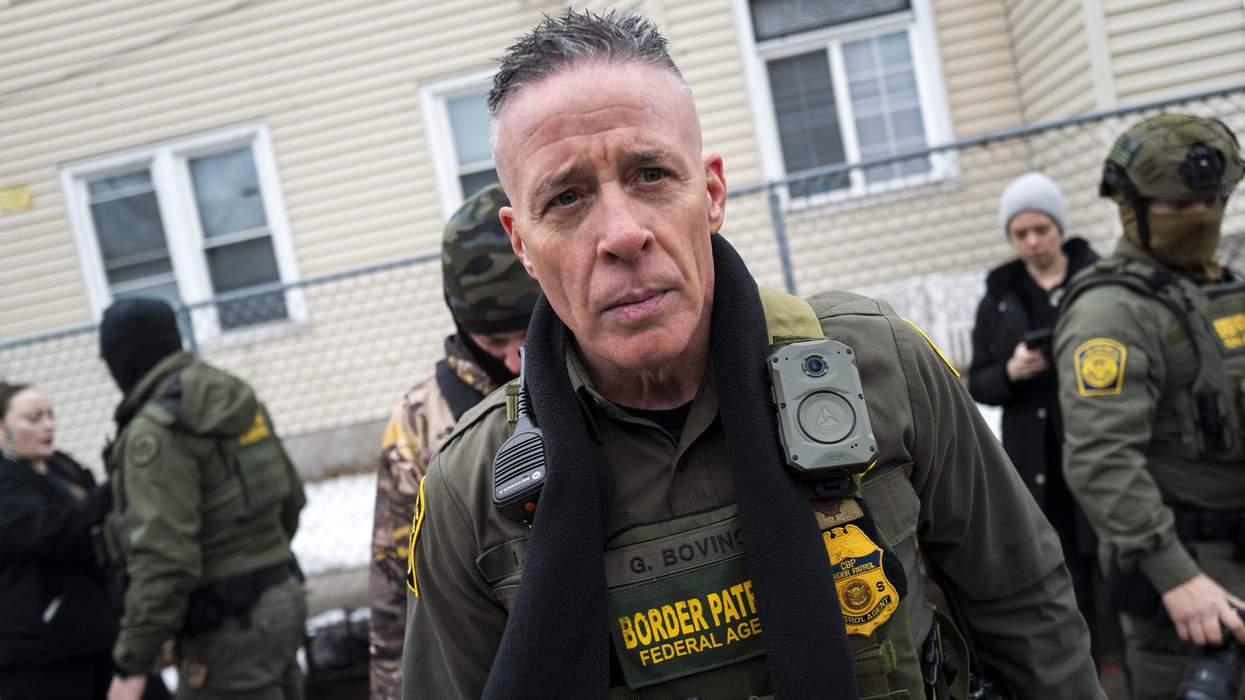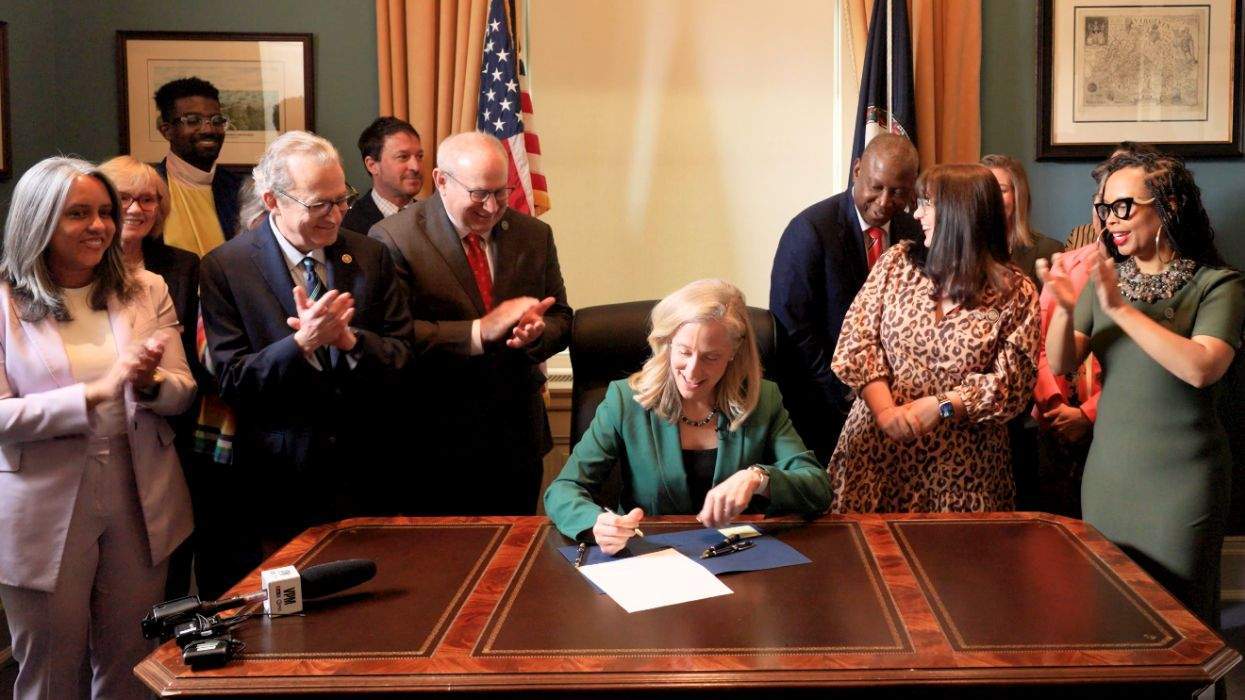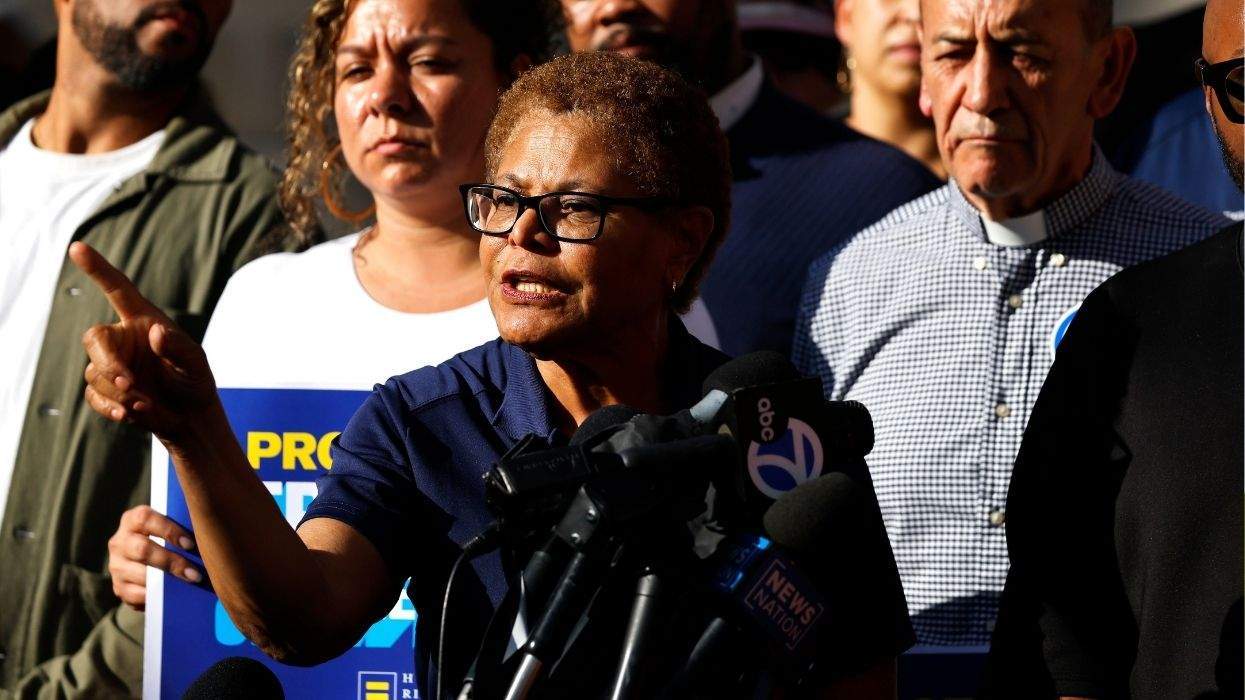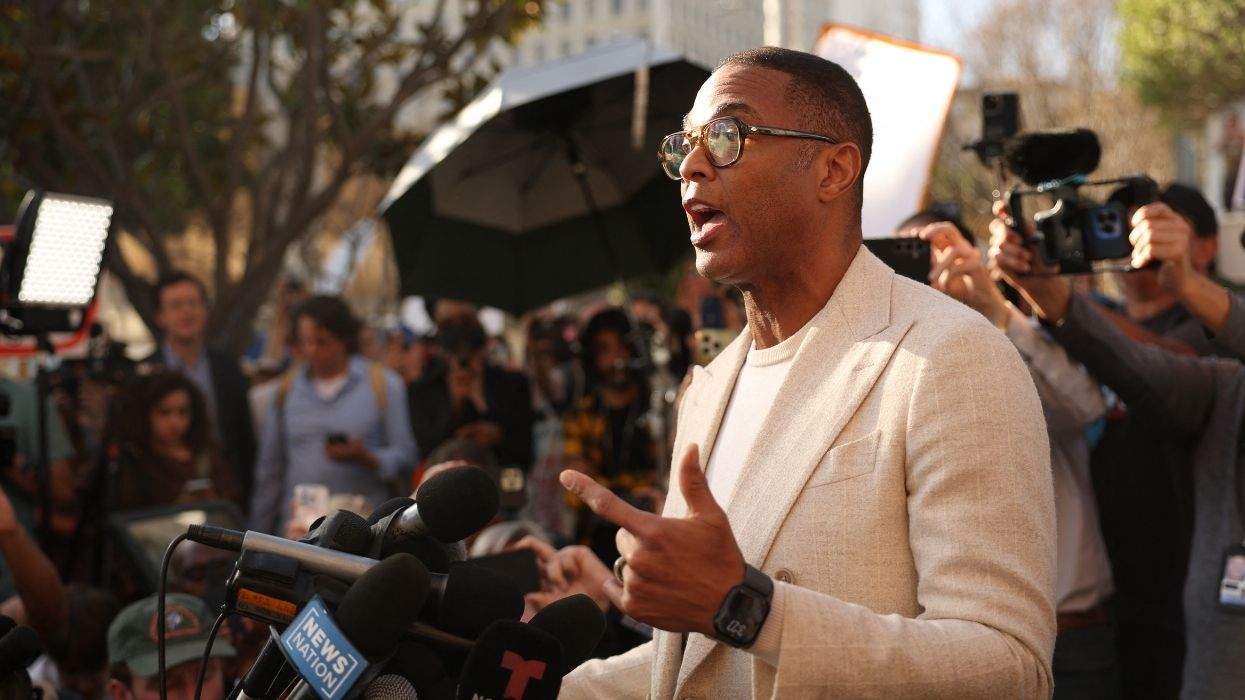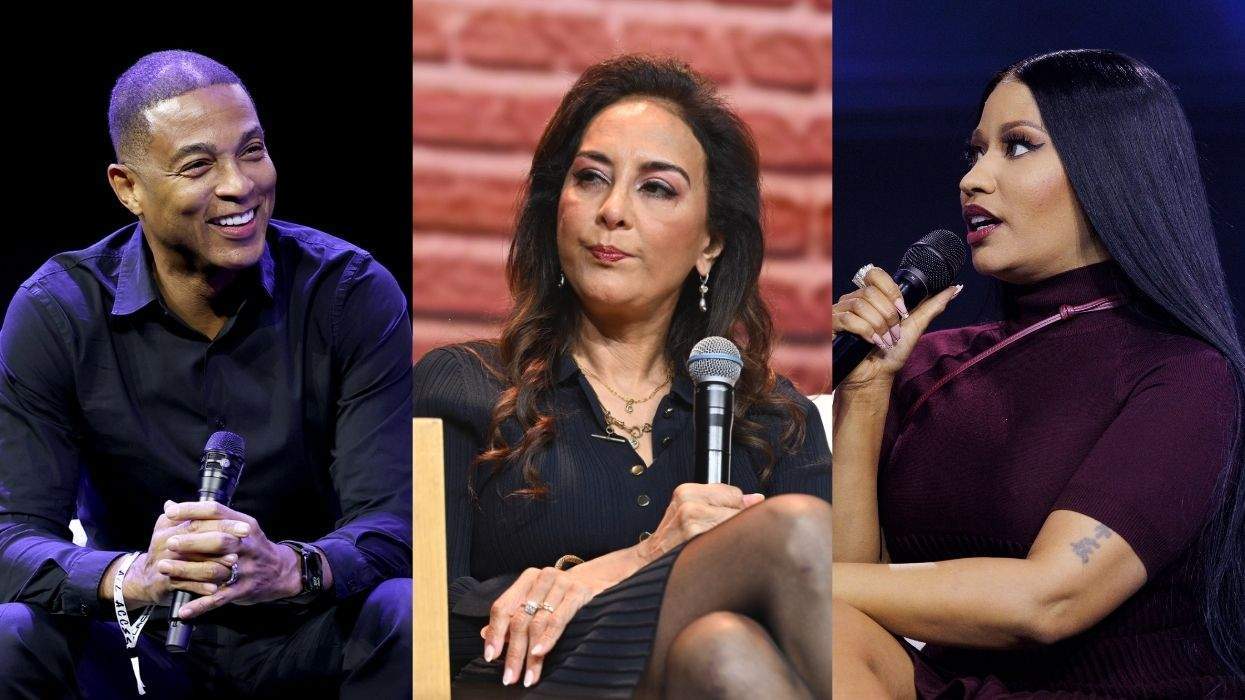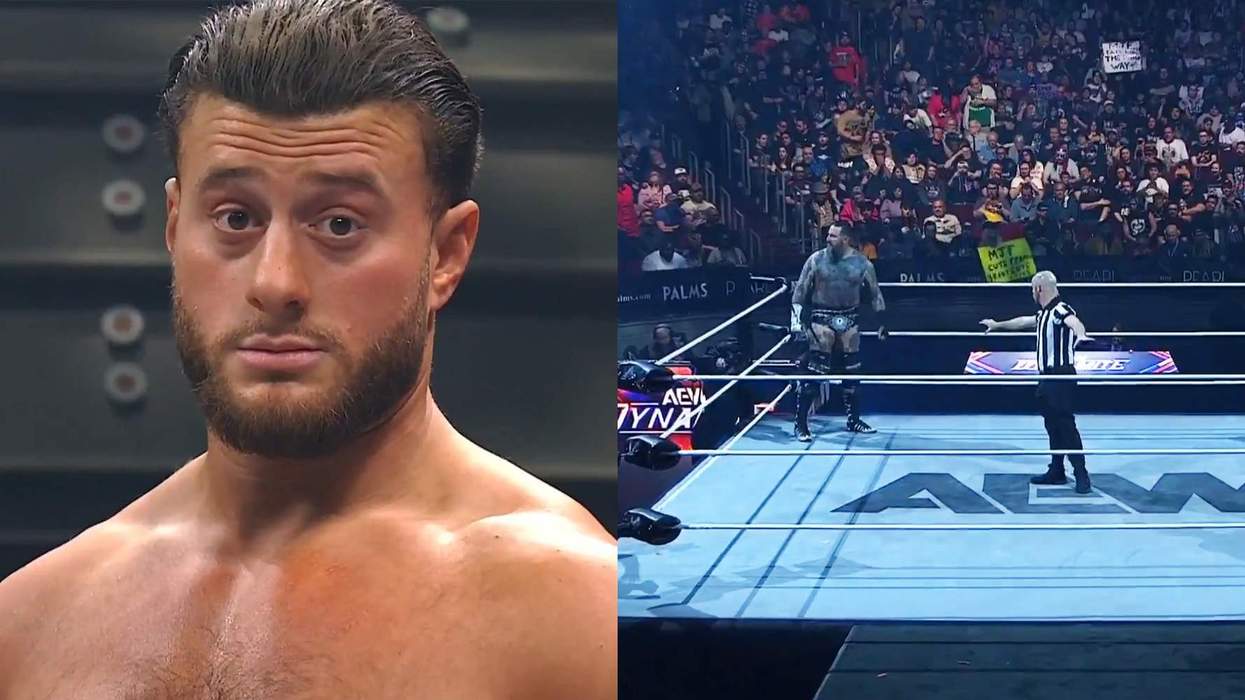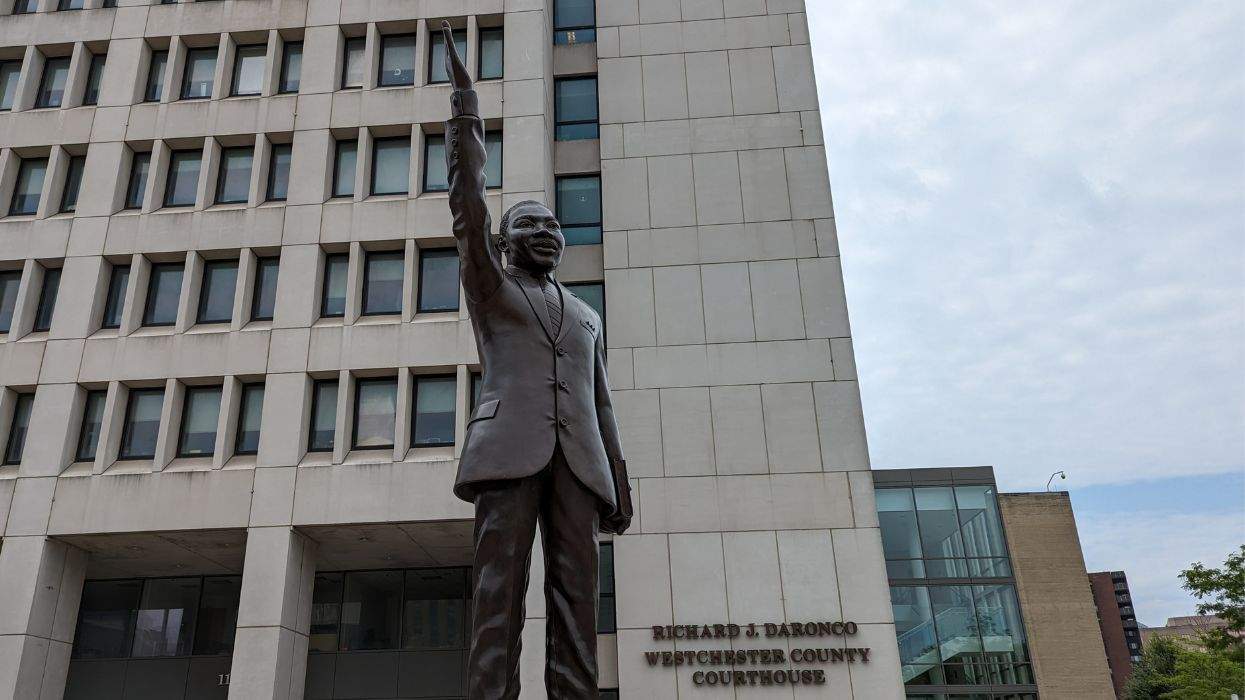On the latest episode of The Advocates podcast, the show dedicated to LGBTQ issues across generations, hosts Tracy E. Gilchrist and Kimberly Eaton welcome writer and social media influencer Jill Gutowitz as their guest. They take on the deeply queer Golden Globes, a very special lesbian Coachella meme, and their personal experiences with The L Word, in honor of the show's 15th anniversary.
Read a portion of the L Word conversation below.
Tracy E. Gilchrist: Fifteen years ago, on January 18, The L Word premiered on Showtime. I think it's safe to say that it changed the culture for queer women. So we really want to pay homage to that and also to look at the problematic pieces of The L Word, why we liked it, why we hated it, why we hate-watched it, who were our crushes. Jill, what was your first experience with L Word?
Jill Gutowitz: I'm definitely an L Word newbie because I came out later in life. I came out when I was 23. I was a very sheltered kid. My parents didn't let me see anything PG-13 until I was 13. I didn't even know about The L Word growing up, which is dark. I became aware of it in my early 20s, but I didn't watch it until that year when I was kind of coming to terms with everything and realizing, "Oh, shit. I'm fucking gay."
I remember I started ... I was like, "Whatever, I'll just watch one episode, see what this stupid show is about." I was so resentful of it. Like, "Whatever, this is the gay show. I'll just watch one episode. It's probably gonna be dumb." I watched one episode and I was like, "OK. this rocks."
Tracy: What about it rocked for you, though?
Jill: Honestly, I have a sweet spot in general for 2000s television. Truly, the outfits and the hair and just the culture and the music and all of it. Alice's hair is so insane, especially in the pilot. I had never seen anything besides maybe Orange Is the New Black at that point, with women just openly having sex and having these drawn-out storylines together.
Kimberly Eaton: I was actually introduced to it, I think, maybe a little bit later that year. Technically, whenever it first came out on DVD. It was introduced to me by a friend while we were in college, who's actually a cis hetero woman, and she's like, "There's this show called L Word, and I have the season 1 DVD." She was one of those where it's like, "Ooh, Shane -- oh, I think I could be with someone like ..."
Tracy: The reason I didn't want to go first was that my relationship to The L Word started kind of somberly. I didn't want to be a downer right off the bat.
I was in my early 30s and I had been writing for our local queer magazine -- Metroline magazine in Connecticut. It was 2003, and I had gotten the DVD. I got the first five episodes of The L Word in December.
It happened that my dad had been diagnosed with cancer the summer before, and by December he went into the hospital and he never came out. He passed in February of 2004. So I had these L Word DVDs, my dad was getting sicker and sicker, and it was a balm, a salve for me. I think I watched those first five episodes over and over, because, for one thing, I'd never seen anything like it on television. You know, there were some [lesbian-themed] movies, but nothing so bold and no community.
For me, The L Word was revelational. At first, I think I didn't notice any of its problems. I may have noticed them, but I forgave them all.
Jill: It's interesting how I think The L Word has been there for so many people in so many different ways. It's such an easy question, I think, especially for queer women to be like "What's your L Word story?" because usually you watch it at a time. It was formative for a lot of people in different ways.
I was a latecomer, but it was definitely the same experience of I watched it because I was dealing with this thing, and it became really important to me, and now I can watch it like it's candy because it reminds me of that time. That's a really nostalgic thing for me to rewatch it too. Again, there are a lot of issues that I was at the time completely overlooking, because, "Well, OK. get rid of that. Let me just see the gay stuff, because that's what I'm here for, and I'll forgive this and then go back later." So I think it is interesting how easy it is for queer women to relate to it.
Tracy: And there's really nothing quite like it. I think Orange Is the New Black is the closest.
Kimberly: And hasn't been since. It's not that I was ever in a situation of grappling with the feelings that I had. I don't think that that was ever the thing, but it definitely made me comfortable and actually more excited about being vocal. You know, being more vocal about who I was. Yeah, I know what I'm feeling, 'cause I've felt this way for a long time. I think I feel like I've felt this way since maybe like third grade, but I'm just seeing examples of -- manifestations or different characters of how you can express yourself as a queer person. It was like just seeing examples was really exciting.
Tracy: Since [The L Word] I've had Pretty Little Liars and Callie and Arizona on Grey's Anatomy and there have been so many others. But I was craving queer content, so I went back and started watching The L Word again recently. I knew that it was biphobic, I knew that it was transphobic, in a lot of its writing. I'm not forgiving it, and I'm not saying it's OK. [It reminds me] that's how we used to be. I always try to be open to people's identities and understanding, but I think that especially, Kimberly, you can speak to this, bisexual women have put up with that kind of bullshit.
Kimberly: Still do. You do want to give a little wiggle room to something like that because it [was] brand-new, unchartered territory, so you're like it's going to be messy and there are going to be things that you can't anticipate and are not going to do correctly. I mean obviously, that show could not exist in its form now. It would be ripped apart.
Listen to the full podcast below for more discussion about the Golden Globes, lesbian memes, and The L Word.
The Advocates podcast is a biweekly series from the world's most influential LGBTQ magazine, where host Tracy E. Gilchrist breaks down the biggest stories in queer news, along with numerous LGBTQ guests. Don't miss a single episode by subscribing on iTunes, Soundcloud, or Google Play.


